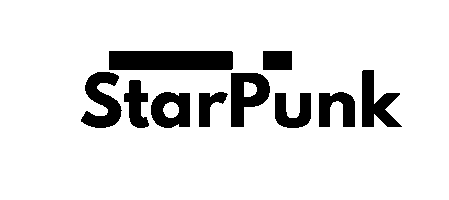If you’re wondering, “What is Seekde and why does it matter?” the answer—clearly, within the first hundred words—is that Seekde represents a new digital ecosystem built around smarter, more ethical search and discovery. It’s not just another search engine; it’s an informational framework that merges human intuition with algorithmic intelligence to deliver more meaningful, context-driven results. Seek-de aims to replace random browsing with purposeful exploration—helping users find what they truly need, not just what trends dictate. This article will unpack the concept, its design philosophy, how it differs from traditional platforms, and why it signals the next phase of intelligent information systems.
The Concept: What Seekde Really Is
Seekde can be described as an integrated digital discovery environment (IDDE)—a system that combines artificial intelligence, behavioral understanding, and transparent algorithms to filter content responsibly. Instead of overwhelming users with endless results, it organizes information into meaningful layers. Imagine a library where every book rearranges itself to suit your reading goals, without hiding opposing viewpoints.
Seek-de stands for three pillars:
- Seek clarity – not just data, but understanding.
- Seek depth – contextual information over shallow clicks.
- Seek direction – purposeful discovery that saves time.
The goal isn’t to replace human curiosity but to refine it through better tools.
“Seekde is where information meets intention,” says digital ethicist Anya Rhodes. “It’s about helping users think better, not faster.”
Why Seekde Emerged: The Information Overload Problem
Every day, the internet generates trillions of bytes of new content. Traditional search models struggle to distinguish between relevance and noise. Advertisements, clickbait, and algorithmic bias have turned discovery into distraction.
Seek-de emerged as a response to these limitations. It introduces adaptive intelligence—learning how people interpret and apply knowledge, not just what they click. Instead of ranking pages by popularity, it weighs them by authenticity, diversity of sources, and contextual alignment with the user’s purpose.
This reorientation addresses the silent fatigue of the digital age: information abundance without meaning.
Read: TheStoogeLife: Living with Purpose in a Performative World
How Seekde Works: Inside the System
At its core, Seek-de functions through three coordinated layers—Cognition, Curation, and Context.
1. Cognition Layer
This layer uses behavioral learning to interpret user intent. It distinguishes between a casual query (“best movies”) and a research goal (“impact of 1970s cinema on youth culture”). The Cognition Layer adapts results accordingly.
2. Curation Layer
Here, verified sources are prioritized through trust scoring. Articles, videos, and discussions are graded for factual accuracy, originality, and ethical standards. This reduces misinformation without silencing debate.
3. Context Layer
Results are presented dynamically, allowing users to explore connected concepts instead of isolated facts. A search for “solar energy” might show links to policy, storage innovations, and local applications.
Together, these layers turn Seek-de into a learning companion rather than a passive directory.
The Philosophy Behind Seekde
Seekde was built on the belief that search should mirror human reasoning—curious, ethical, and open-ended. Its creators designed it with three guiding values: transparency, inclusivity, and responsibility.
- Transparency: Users can see why content ranks where it does.
- Inclusivity: Voices from smaller, underrepresented communities are algorithmically amplified.
- Responsibility: AI models are audited for bias and fairness.
“Technology should help us slow down, not just speed up,” says cognitive designer Leo Tran. “Seekde’s design philosophy invites mindfulness into digital life.”
Seekde vs Traditional Search: Key Differences
| Feature | Traditional Search | Seekde |
|---|---|---|
| Ranking Logic | Popularity-based | Purpose-based |
| Advertising | Intrusive, targeted | Minimal and transparent |
| Data Privacy | User-tracked | User-controlled |
| Content Presentation | Linear lists | Layered insights |
| Community Input | Passive | Participatory and adaptive |
Seekde’s interface removes the endless scroll and replaces it with interactive knowledge paths—visual maps that encourage exploration without confusion.
The Ethical Core of Seekde
Modern information systems often treat users as data points; Seek-de treats them as thinkers. It follows a strict “digital dignity” model, meaning users own their search history, preferences, and intellectual footprint.
Its code includes built-in privacy locks, optional anonymity, and customizable algorithms. Users can prioritize academic sources, independent creators, or regional voices. This flexibility ensures that discovery remains human-centered.
“Seekde reminds us that technology is most powerful when it remembers its moral duty,” remarked policy analyst Marta Greene.
Applications of Seekde
Seekde’s framework can be applied across various fields:
- Education: Personalized learning environments for students and teachers.
- Healthcare: Reliable medical information free from corporate bias.
- Research: Collaborative data libraries and peer review tools.
- Business: Market insights filtered through ethical sourcing models.
- Cultural Preservation: Amplifying indigenous and local knowledge networks.
In each domain, Seekde strengthens comprehension by prioritizing context and ethics over volume.
Table: Sample Use Scenarios for Seekde
| User Type | Objective | Seekde Application | Result |
|---|---|---|---|
| Student | Writing research paper | Contextual citation suggestions | Saves time, ensures credibility |
| Journalist | Investigating policy | Fact verification via trust scores | Reduces misinformation |
| Entrepreneur | Market analysis | Data insights by region and ethics filters | Better-informed decisions |
| Historian | Archival research | Cross-linked historical documents | Broader narrative perspective |
| Citizen | Learning about health | Verified, bias-filtered articles | Trustworthy self-education |
Seekde and AI Ethics: A Balanced Relationship
AI drives Seekde, but it doesn’t dominate it. Unlike systems that optimize solely for engagement, Seekde’s algorithms follow a “meaning-first” principle—prioritizing clarity and utility over attention metrics.
Ethical AI in Seekde operates through three checks:
- Explainability: Every recommendation must have a traceable logic.
- Diversity Audit: Results are tested to ensure varied representation.
- User Override: People can adjust what data influences their results.
This makes Seekde not just transparent but teachable. It learns with you, not about you.
The Experience: Using Seekde as a Daily Tool
A user opens Seekde and types “sustainable travel.” Instead of showing generic links, the interface creates a visual path: one branch explores low-carbon transport, another highlights eco-tourism policies, and another connects to local travel guides.
The sidebar suggests verified academic sources, while a “Human Voices” section features forum insights and blogs from practitioners. The user can toggle perspectives—scientific, ethical, or economic—depending on their intent.
By the end, Seekde transforms a search query into a curated understanding.
Quotes That Capture the Spirit of Seekde
“Seekde isn’t about finding more—it’s about finding meaning.” — Ava Kim, Data Philosopher
“Every search becomes a story, every result a lesson.” — Dr. Roland Pierce, Education Technologist
“Seekde is what the internet promised but never delivered: order, curiosity, and truth.” — A beta user review
“We built it for thinkers, not scrollers.” — An early developer
The Design of Seekde: Simplicity Meets Depth
The interface design reflects cognitive ergonomics—structured to reduce fatigue and enhance comprehension.
Design Highlights Include:
• Adaptive search bars that evolve with user patterns.
• Visualized topic maps for better contextual exploration.
• Annotation tools allowing users to build personal archives.
• Reading mode that removes distractions and highlights key insights.
By integrating mindfulness principles, Seekde encourages reflective browsing rather than addictive consumption.
Educational Impact: Seekde as a Learning Partner
Seekde is rapidly finding traction in education. Teachers use it to design research modules where students analyze diverse perspectives. Its layered search promotes media literacy, teaching young users to question sources rather than memorize answers.
For researchers, Seekde reduces redundancy by flagging similar studies or outdated data. The collaborative mode allows teams to build knowledge webs together, connecting disciplines that usually operate in silos.
“It’s like having a librarian, an analyst, and a philosopher rolled into one tool,” said Professor Elena Duarte from the University of Madrid.
Seekde’s Approach to Community Knowledge
Unlike most search engines, Seekde integrates community participation through its Open Insight Program. This feature allows verified users—academics, educators, local experts—to contribute insights and metadata that refine future searches.
This collective curation model turns Seekde into a living encyclopedia that evolves with its users. Knowledge is no longer static; it’s dialogic.
Communities benefit because their expertise gains visibility without losing ownership.
Sustainability and Digital Responsibility
Seekde’s infrastructure emphasizes energy-efficient operations. It runs on optimized data centers powered by renewable sources. Additionally, its data compression methods reduce carbon footprints associated with digital searches.
This focus aligns with the broader “Green Tech Literacy” movement—making users aware of the ecological cost of digital consumption. Seekde’s dashboards even show the estimated environmental impact of queries, reminding users that information has an energy cost.
Table: The Environmental Metrics of Seekde
| Metric | Purpose | Example Outcome |
|---|---|---|
| Query Efficiency | Reduce server load | 35% lower carbon per search |
| Data Compression | Optimize storage | Less bandwidth use |
| Green Hosting | Renewable-powered servers | 100% wind-sourced energy |
| User Education | Promote eco-awareness | Dashboard insights on energy usage |
Seekde and the Future of Journalism
For journalists, Seekde is both a research ally and an accountability mechanism. By ranking sources through factual integrity and transparency, it helps reporters cross-verify data faster.
It also strengthens ethical reporting: sponsored content and AI-generated articles are clearly labeled, ensuring readers know the difference between information and influence.
The forum section of Seek-de allows investigative reporters to collaborate across borders, reducing redundancy and amplifying accuracy.
Cultural and Social Impact
Seekde could redefine how people engage with truth itself. In a time of misinformation and polarization, its structured openness invites debate rather than division. Each result becomes an invitation to dialogue.
By connecting data to context, Seek-de turns individual curiosity into collective understanding. It gives small creators visibility and gives readers the tools to think critically—skills that the modern world desperately needs.
“If the internet is chaos, Seekde is its compass,” said sociologist Diane Hooper.
Potential Challenges and Limitations
No innovation is perfect, and Seek-de faces its share of challenges:
• Balancing personalization without creating echo chambers.
• Maintaining neutrality while prioritizing truth.
• Scaling infrastructure sustainably as user demand grows.
• Ensuring open participation without misinformation creep.
However, the development team’s transparent governance model—publishing annual bias audits and community reports—mitigates these risks by inviting oversight instead of hiding from it.
Future Roadmap: What Comes Next for Seekde
Seekde’s next development phase includes:
- Voice-based semantic search for accessibility.
- Multilingual expansion with cultural nuance engines.
- Cross-platform API for educational and governmental use.
- Integration with academic citation tools and sustainability dashboards.
The long-term vision is to make Seekde a universal interface for knowledge—bridging AI intelligence with human moral reasoning.
Table: Seekde’s Projected Development Timeline
| Year | Feature Focus | Expected Outcome |
|---|---|---|
| 2025 | Global Accessibility | Voice and multilingual inclusion |
| 2026 | Open Data Integration | Partnership with universities |
| 2027 | Community Publishing | Verified contributor model |
| 2028 | Full Cognitive AI Rollout | Contextual understanding at scale |
Bullet Recap: Key Takeaways About Seekde
• Seekde represents the next evolution of ethical, intelligent search systems.
• It prioritizes purpose, transparency, and sustainability.
• AI in Seekde learns with users, not about them.
• Its community-driven model empowers educators, researchers, and independent thinkers.
• Seekde bridges the gap between knowledge and wisdom in the digital age.
The Broader Implication: Redefining the Internet’s Purpose
Seekde is part of a larger movement to reclaim the internet from distraction. It recognizes that knowledge without reflection is noise. By reintroducing human judgment into algorithmic systems, it restores balance between machine precision and moral intention.
Its existence challenges every tech company to rethink what digital responsibility should look like—not as a marketing slogan, but as a daily practice of transparency and fairness.
Quotes That Sum Up the Vision
“Seekde’s mission is not to know everything—it’s to help people understand anything.”
“True discovery happens when information leads to wisdom, not consumption.”
“Seekde builds bridges between what’s true and what’s needed.”
“In a world full of noise, it teaches us to listen again.”
Conclusion: Seekde as the Future of Conscious Discovery
Seekde is not just a platform; it’s a manifesto for mindful digital living. It reminds us that technology should serve curiosity, not addiction—that search should illuminate, not manipulate. Its value lies not in replacing the old web, but in restoring its founding purpose: connection through knowledge.
By integrating transparency, ethics, and context, Seekde transforms discovery into understanding. For the modern user overwhelmed by information yet starved for meaning, Seekde offers what few systems do—a way to seek deeply, think clearly, and live intelligently.
5 Frequently Asked Questions (FAQs)
Q1. What exactly does Seekde do?
Seekde is an advanced digital discovery platform that merges artificial intelligence, ethical design, and human intent to deliver meaningful, trustworthy results.
Q2. How is Seekde different from Google or Bing?
Unlike traditional search engines, Seekde prioritizes purpose over popularity. It offers layered insights, transparency in ranking, and zero hidden advertising.
Q3. Is Seekde suitable for academic or professional research?
Yes. Seekde’s contextual filtering, citation tools, and verified sources make it ideal for scholars, journalists, and business researchers alike.
Q4. How does Seekde protect user privacy?
Seekde runs on a “digital dignity” framework—no data resale, user-owned preferences, and optional anonymity modes ensure control and safety.
Q5. When will Seekde become widely available?
Seekde’s rollout begins with educational and research institutions, with broader public access planned in subsequent phases. Its framework is designed for sustainable scaling.






